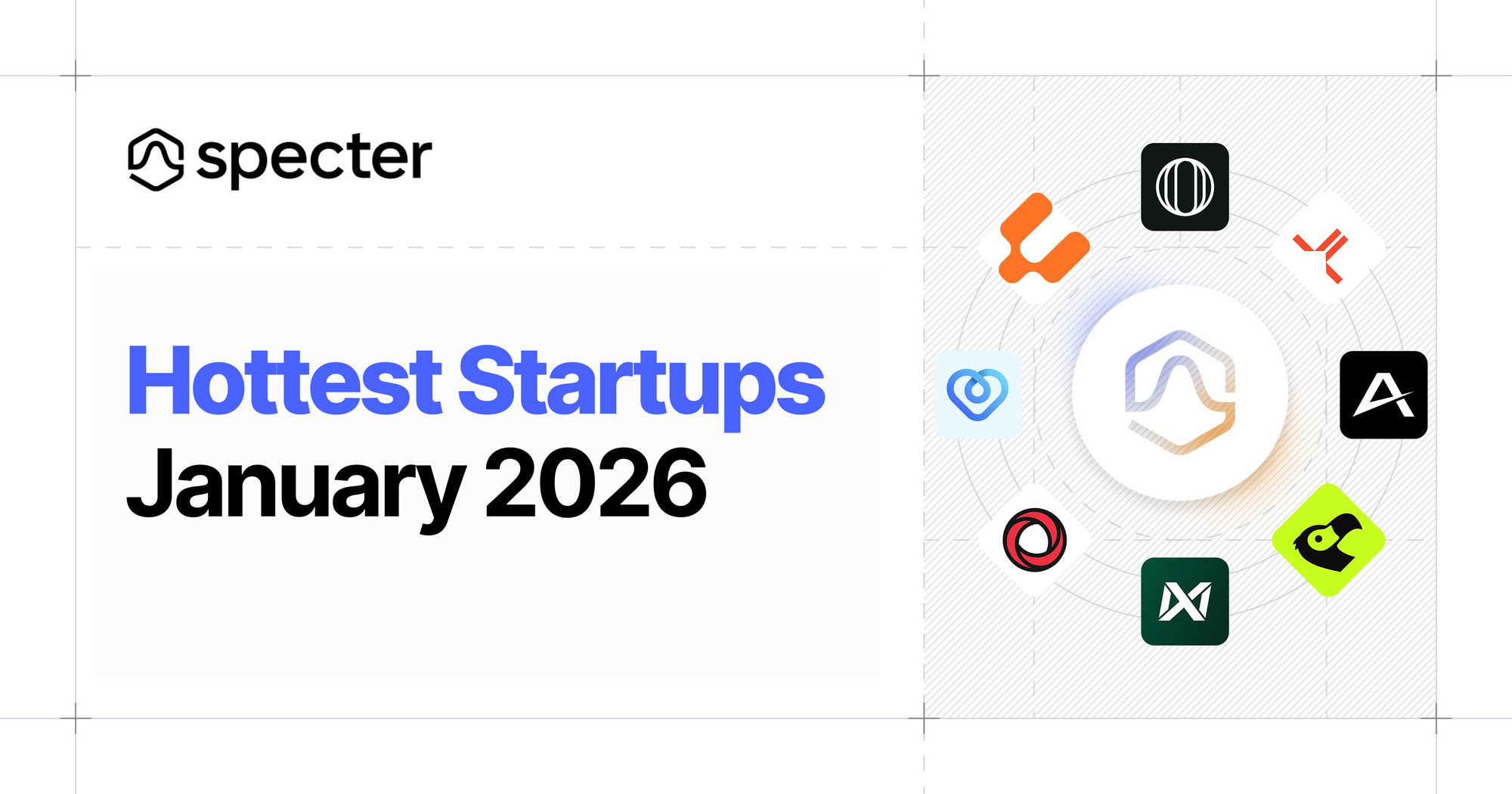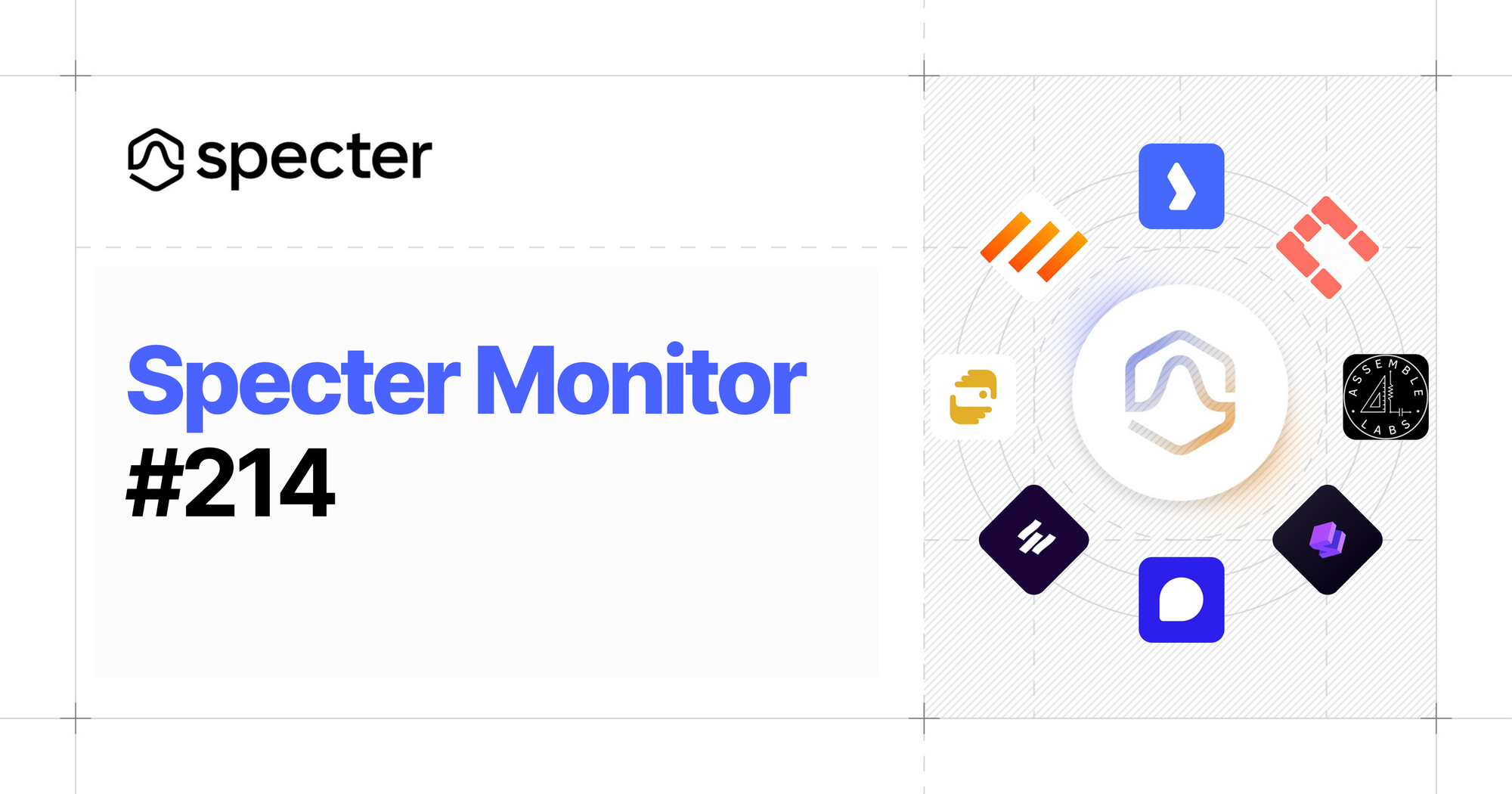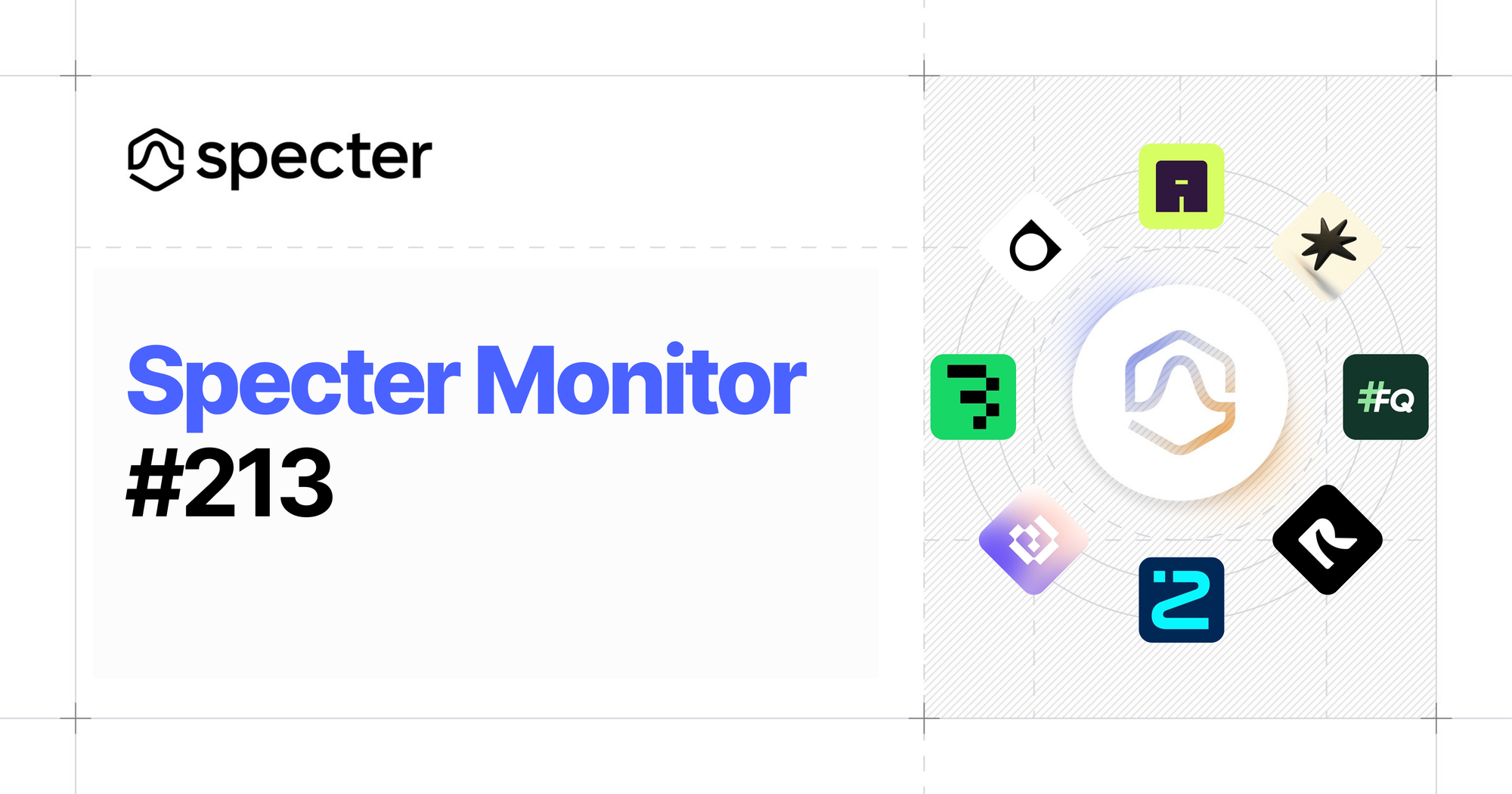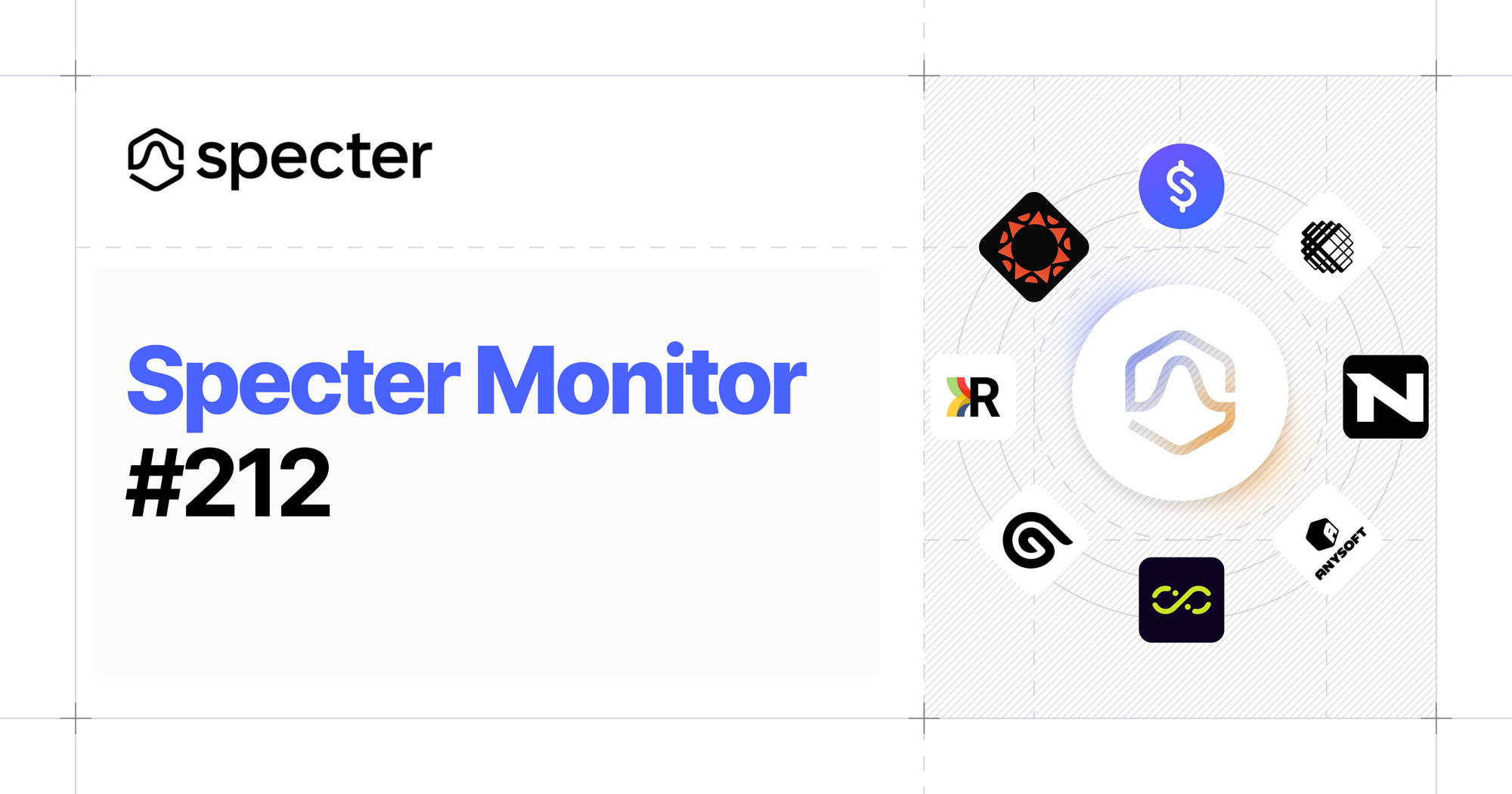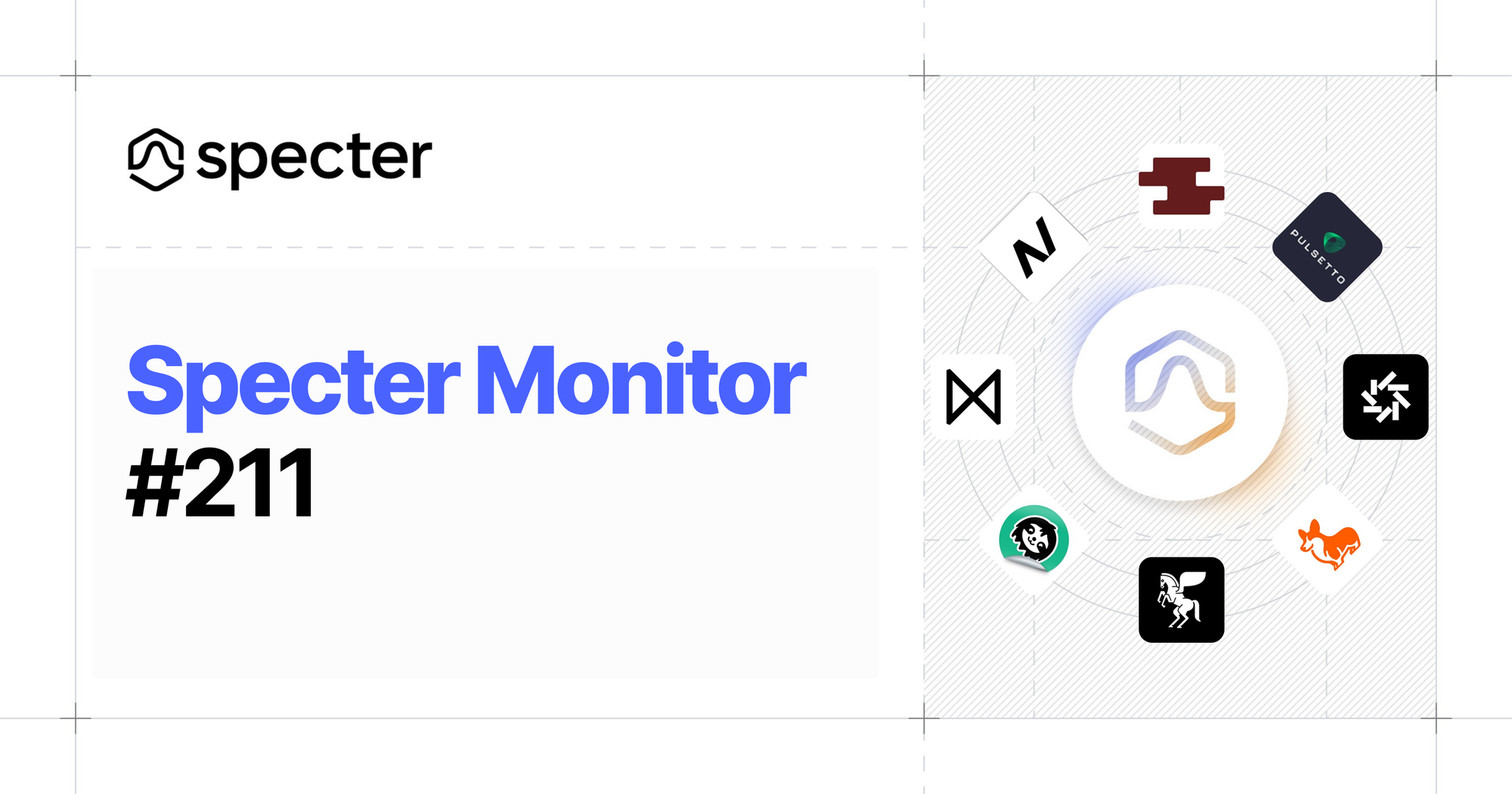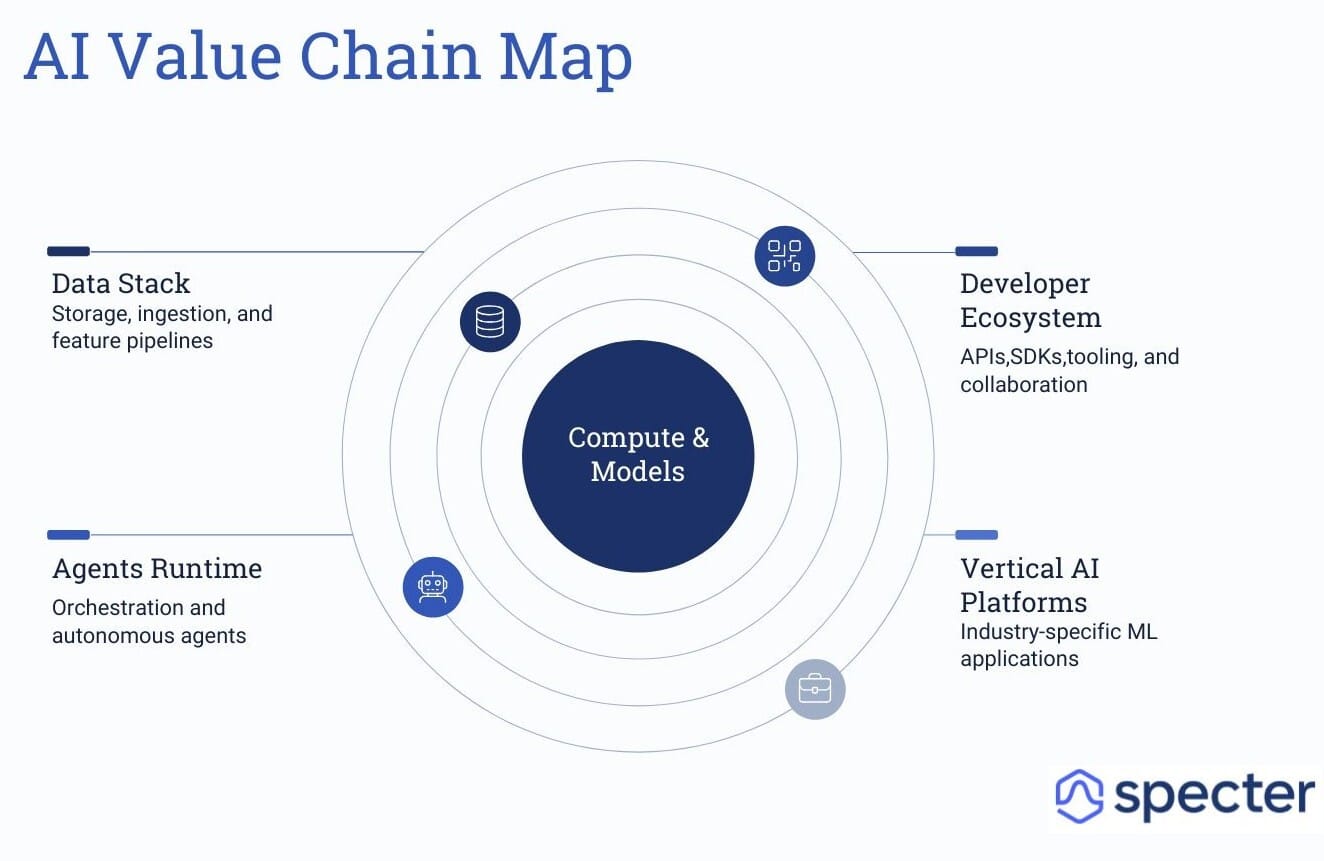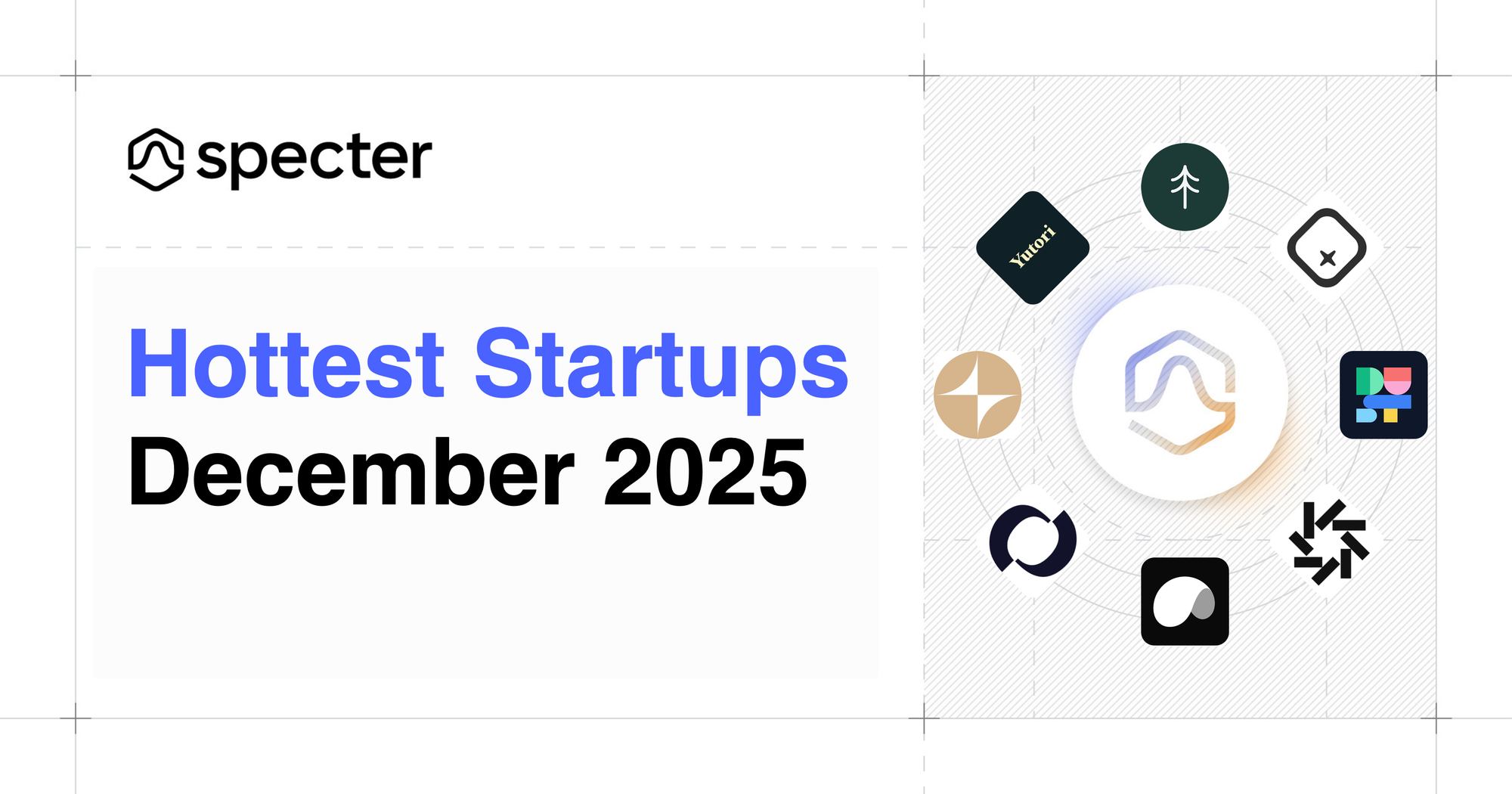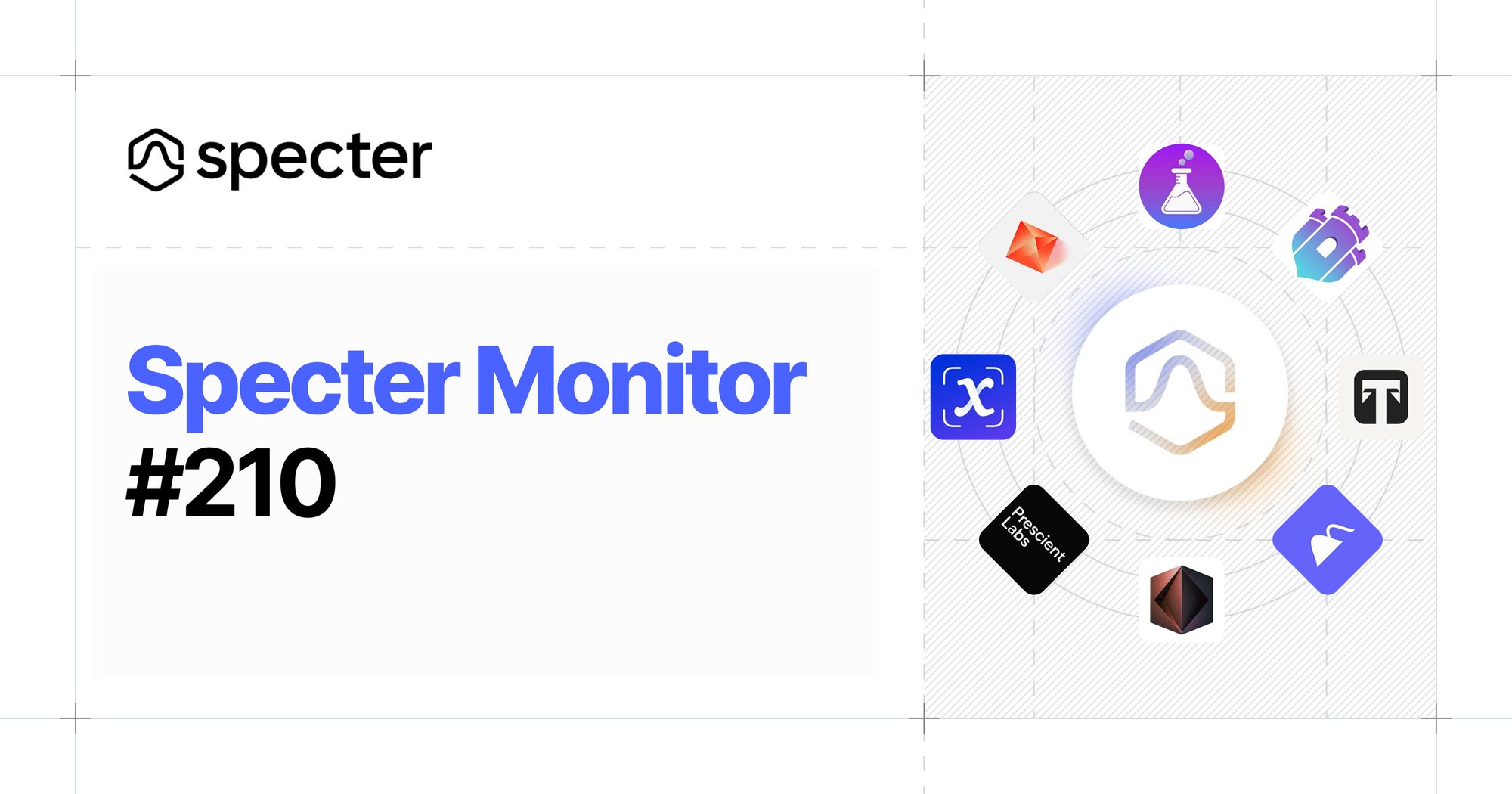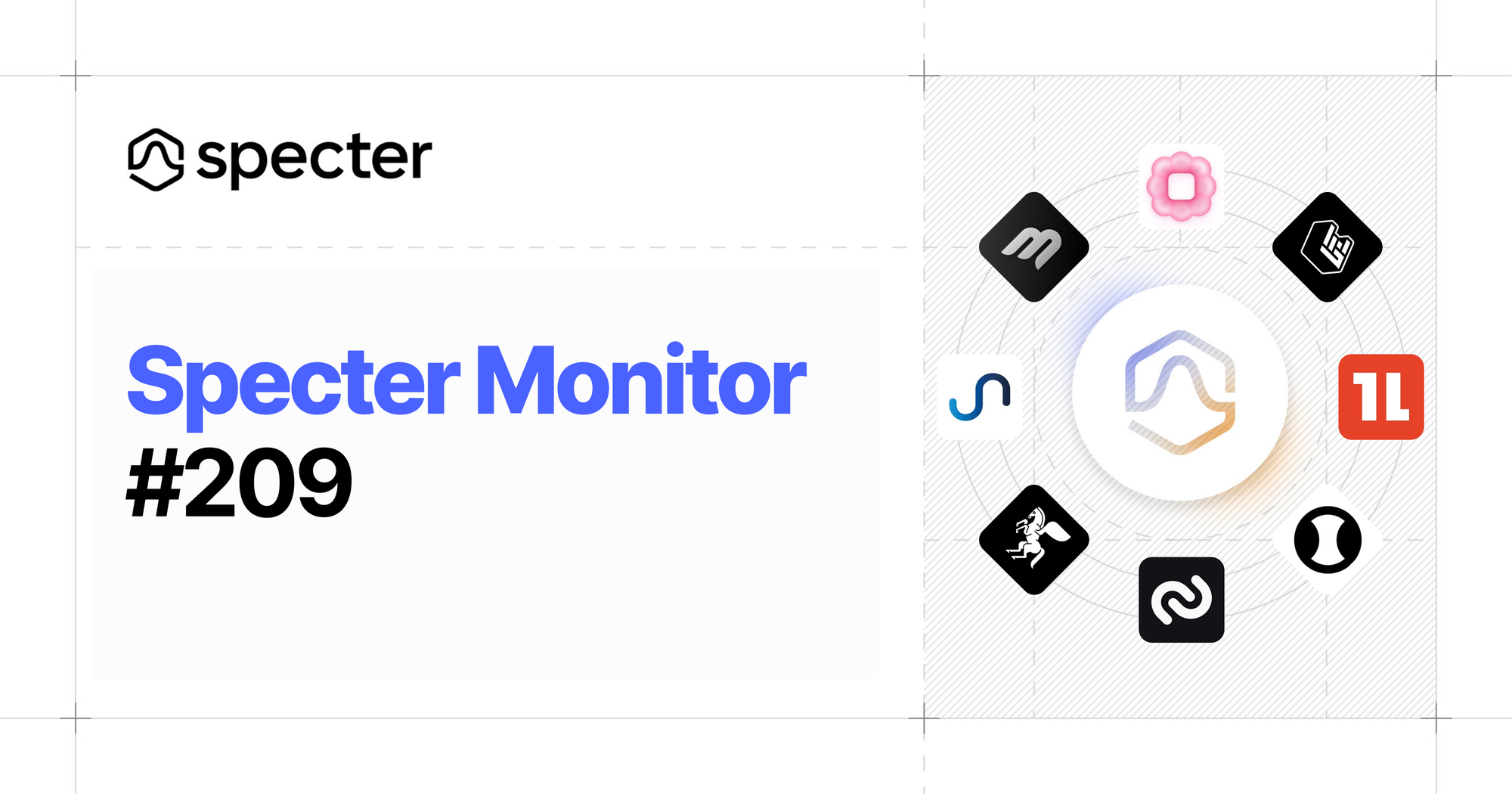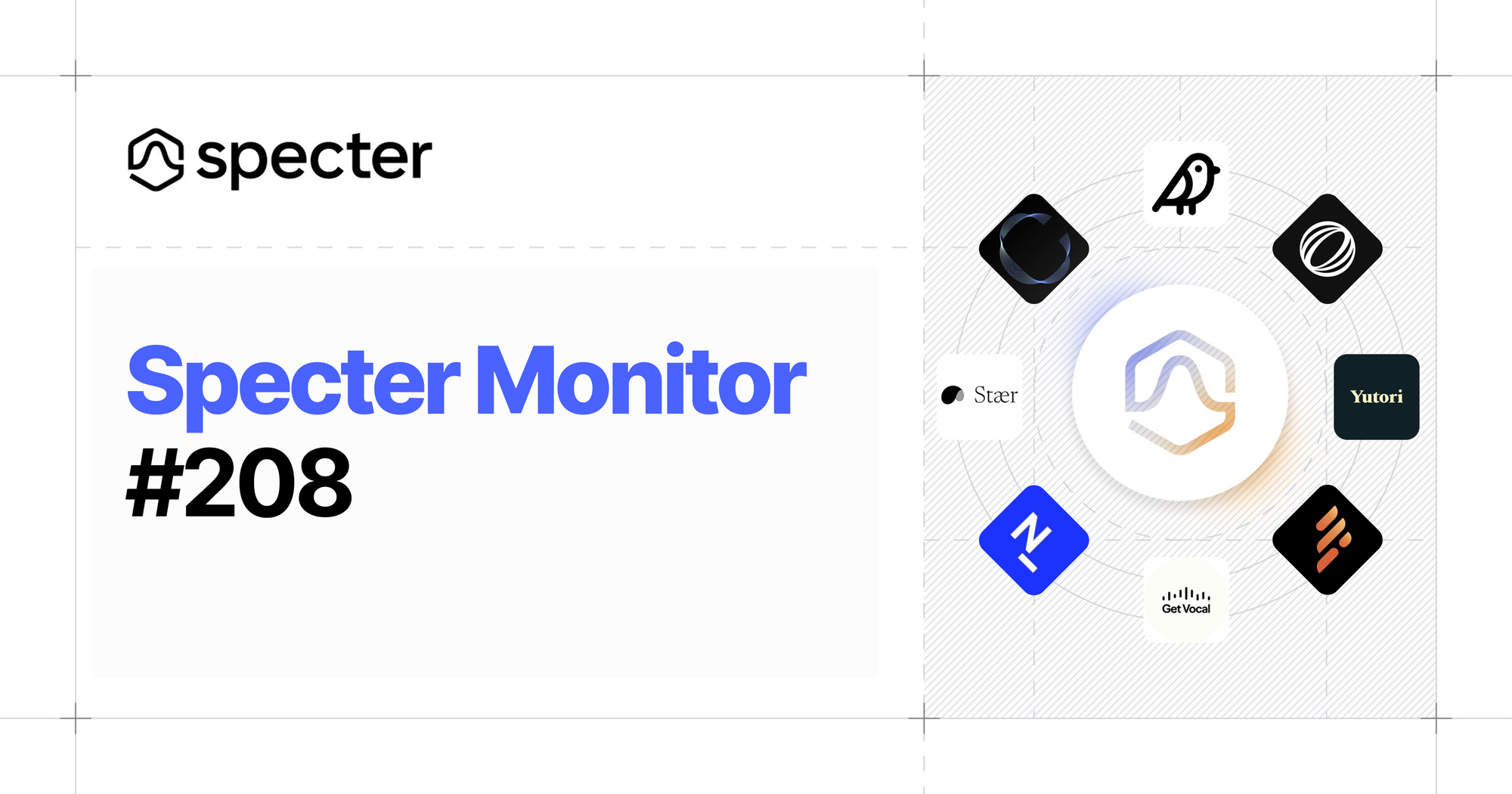Building on the foundation laid by a16z’s “Space: A Market Map” (S/O Ryan McEntush - Investment Partner), we’ve expanded the horizon with Specter’s platform, mapping 490+ companies powering the commercial space economy — from next-gen satellites, orbital logistics, and in-orbit servicing to mission software, ground infrastructure, and space manufacturing.
As the sector shifts from exploration to scalable infrastructure, these companies are laying the operating system for an enduring orbital economy — distributed, adaptive, and built for commercialization.
Get The SpaceTech Landscape!
Already a Specter user? Click here to explore the SpaceTech Landscape 🪐
Not on Specter yet? Download the list and get in touch to access the full dataset 📥
Logistics
Catalyx (🌟 Specter - Global Rank 1,086)
Building autonomous space labs and re-entry capsules (“AWS for space”) to let customers run experiments or small-batch manufacturing in orbit and return payloads safely. CEO Rifath Shaarook became widely known at 18 for leading the team behind KalamSat, billed as the world’s lightest satellite, launched via NASA’s Cubes in Space; co-founders Clinton D. Antony, Keerthan Chand Aluvala, and Saqib Hussain round out spacecraft, avionics, and commercial leadership. Publicly demoed a mid-air capsule drop/landing test and is expanding infrastructure across India/US. Last funding: $1.7m pre-seed on Jan 2025 backed by Founders, Inc. and HF0. Based in Bengaluru, India.
Spaceium Inc. (YC S24) (🌟 Specter - Global Rank 2,413)
Building in-space refueling stations to extend satellite and spacecraft missions—graduated YC S24 and announced a $6.3m seed to accelerate depot development. Co-founders Ashi Dissanayake (Aerospace; orbital mechanics & NASA-related aero projects) and Reza Fetanat (Mechanical/Aerospace; propulsion, vehicle design). Last funding: $6.3m seed on Jan 2025. HQ: Ottawa, Canada.
Ecosmic (🌟 Specter - Global Rank 2,233)
Develops SAFE, a collision-risk estimation and automated collision-avoidance software to cut false alerts and streamline space traffic management (SSA/STM); Significantly higher accuracy than industry tools, and Ecosmic’s own site details recent ESA/ASI-funded service work and product launch at Space Tech Expo Bremen. Founded by Benedetta Cattani, Gaia Roncalli, and Imane Marouf (space engineers with ESA/TU Delft roots), later HQ’d in Turin, Italy. Last funding seed on May 2025; Total funding $1.18m backed by Primo Space.
Space BD (🌟 Specter - Global Rank 4,873)
Space BD is a Tokyo-based space services integrator—JAXA-selected provider for ISS “Kibo” utilization (e.g., i-SEEP external platform) and smallsat launch/deployment brokerage, operating as a one-stop business partner across launch, IOD/ISS experiments, and procurement. Masatoshi Nagasaki co-founded Space BD in 2017 and serves as CEO; company built a leading position in Japan’s nanosat deployment market via JAXA partnerships. Last funding: $9.21m (JPY 1.04bn) on Dec 2021 backed by Temasek’s Pavilion Capital.
Remote Sensing
Array Labs (🌟 Specter - Global Rank 94)
Array Labs is building a distributed-radar satellite cluster to generate high-resolution 3D Earth imagery; the company’s April 2, 2025 update unveiled the first four-satellite production cluster and an early-access program, following multiple AFWERX awards in 2024–2025 for formation-flight coatings and high-power antennas. Co-founder/CEO Andrew Peterson (YC S22) worked across remote-sensing projects (incl. the Vera Rubin Observatory) before teaming up with José Isaac Robledo; recent collaboration with Maxar on 3D operational terrain. Total funding raised $6m. Last funding: seed on Jul 2025.
Deep Mirror (🌟 Specter - Global Rank 4,468)
Deep Mirror builds MirrorScene, a collaborative 3D-scanning tool that lets multiple mobile devices co-capture and share spatial data for AR—positioning the company in “spatial intelligence” adjacent to remote sensing. HQ in Guangzhou and founded 2019, founders including Yizi Wu, Christina Cao, and Harry Hu. Last funding: corporate round on June 2025; Total funding $3.5m.
Map My Crop (🌟 Specter - Global Rank 5,368)
Map My Crop (brand of Hardcastle Agrotech Solutions Inc.) offers a 360° AI-powered crop-monitoring suite (web, mobile, APIs) combining satellite, drone, and IoT data; disease/water-stress detection and an expanding partner footprint. Founded by Swapnil (Neil) Jadhav and Sachin Sonigara (with Rajesh Shirole featured in some profiles) following prior GIS work; active across New York & India. Last funding: $1.8m seed on March 2025 led by YourNest with participation from Eaglewings and others.
Open Cosmos (🌟 Specter - Global Rank 381,199)
Provides end-to-end smallsat missions (build → launch → operate) and satellite-data platforms. Origin story: founded by Rafel Jordà Siquier, with co-founders Aleix Megias Homar (Ops) and Jordi Barrera Ars (Tech)—each with prior Airbus/ESA or small-sat backgrounds—per the company’s leadership pages. Last funding: ~$50m series b on Sept 2023 co-led by ETF Partners, Trill Impact, and A&G, with participation from Accenture Ventures, Banco Santander InnoEnergy Climate Tech Fund, Claret Capital, and angels incl. Taavet Hinrikus.
Resources & Exploration
AstroForge (🌟 Specter - Global Rank 1,552)
Developing asteroid-mining and in-space refining tech. Its Brokkr-1 refinery demo launched on SpaceX Transporter-7 with OrbAstro in April 2023, and the company later announced a $40m series a Feb 2025 bringing total funding to ~$55m. Founded in 2022 by Matthew Gialich (ex-Virgin Orbit avionics/GNC) and Jose Acain (SpaceX/NASA experience), AstroForge has continued iterating on deep-space missions toward in-situ resource extraction.
Astrolab (🌟 Specter – Global Rank 28,380)
Developing FLEX, a large lunar logistics rover; NASA selected the company (with Intuitive Machines and Lunar Outpost) to advance Lunar Terrain Vehicle capabilities for Artemis. Founder/CEO Jaret Matthews previously led Dragon docking-mechanism development at SpaceX and worked at JPL, anchoring the team’s robotics pedigree. Astrolab has an agreement with SpaceX Starship to deliver FLEX to the Moon as early as 2026, and in 2025 announced its FLIP (FLEX Lunar Innovation Platform) rover will fly on Astrobotic’s Griffin-1 to the lunar south pole.
Star Catcher (🌟 Specter - Global Rank 3,155)
Building a space-to-space wireless power-beaming grid to eliminate power constraints for satellites. The company announced a $12.25m seed Jul 2024 co-led by Initialized Capital and B Capital, and on Mar 2025 completed a public power-beaming demonstration at EverBank Stadium, with further tests planned at Space Florida’s LLF. Founders include Andrew Rush (ex-Made In Space CEO / Redwire President), Michael Snyder (ex-Made In Space CTO), and Bryan Lyandvert.
Astrobotic Technology (🌟 Specter – Global Rank 531,109)
CMU spinoff founded by Red Whittaker, Astrobotic develops lunar landers/rovers and has won multiple NASA CLPS awards, including the $79.5m Peregrine mission. Peregrine Mission One launched in Jan 2024 but failed after a valve-induced fuel leak; Astrobotic published a detailed post-mission report and is targeting Griffin-1 next (now carrying Astrolab’s FLIP rover). Total funding: $249.63m and last funding Grant July 2023.
Satellite Connectivity
Hubble Network (🌟 Specter – Global Rank 679)
Hubble is pursuing direct-to-satellite links from commodity Bluetooth chips, demonstrating the first such connection in May 2024 following earlier launches on SpaceX rideshares. Founded 2021 by Alex Haro (Life360 co-founder), Ben Wild (founded Iotera, acquired by Ring), and John Kim (aerospace engineer). Lastest fundraising $20m series a May 2023.
Northwood (🌟 Specter – Global Rank 2,009)
Northwood (founded by Bridgit Mendler and Griffin Cleverly) is building a global ground-station network of phased-array antennas to create a “data highway between Earth and space.” On Apr 22, 2025, Northwood raised a $30m series a, led by Alpine Space Ventures and Andreessen Horowitz, with Also Capital, Founders Fund, and StepStone joining; the company has since shown 2nd-gen phased-array tests and manufacturing expansion in the U.S.
Skynopy (🌟 Specter – Global Rank 357)
Paris-based Skynopy is building a rapidly deployable, high-throughput ground station network and a real-time connectivity layer for LEO satellites (partners include AWS, Kinéis). Founded 2023 by Pierre Bertrand (CEO) and Antonin Hirsch (CTO), both ex-Loft Orbital. On June 30, 2025 Skynopy announced €15m to accelerate a 100+ antenna rollout (lead: Alven; with Omnes, Expansion, and support via CNES/SpaceFounders)
Astranis (🌟 Specter – Global Rank 265,853)
Astranis builds MicroGEO satellites to provide dedicated GEO broadband for operators. The company raised a $200m, series d Jul 2024 led by a16z Growth and co-led by BAM Elevate, funding the Omega next-gen program; founders are John Gedmark (CEO) and Ryan McLinko (CTO).
Satellite Launch & Operators
Innovative Space Carrier (🌟 Specter – Global Rank 6,996)
Tokyo-based ISC is developing a high-frequency, single-stage reusable space transportation vehicle (ASCA program). The company is led by Founder/CEO Kojiro Hatada, formerly METI & Japan Cabinet Office (helped establish the Space Activities Act and “Space Industry Vision 2030”), and holds a U.S. subsidiary (Sirius Technologies, Boulder). In June 2025 ISC signed an MoU with Hokkaido Spaceport (SPACE COTAN) to plan the ASCA-1.2 domestic test; in May 2025 Reuters reported ISC would conduct a 100-m hop/landing test at Spaceport America (New Mexico) using Ursa Major’s Hadley engine. Last funding: seed on Sept 2024.
Dark (🌟 Specter – Global Rank 7,069)
Paris startup Dark is building Interceptor, an air-launched, rapid-response orbital vehicle designed to rendezvous with, capture and de-orbit dangerous objects—positioned for space defense vs. classic servicing. Founders Clyde Laheyne (CEO) and Guillaume Orvain (CTO) previously worked at MBDA; investors including Eurazeo, Frst, Kima, and Long Journey Ventures. Recent activity includes AID (French Defense Innovation Agency) studies on interception and a CNES collaboration. Last funding: seed on April 2024.
AstroX (🌟 Specter – Global Rank 12,176)
AstroX (Minami-Sōma, Fukushima; est. May 20, 2022) is developing a Rockoon launch system (balloon-assisted rocket) to “reclaim Japan as No.1” in space development. Founder/CEO Shobu Oda (ex-IT entrepreneur) leads the team; JAXA’s Dec 2024 press notice confirms co-creation on a suspension-type attitude-control device for balloon applications. Japan Times and Nippon.com profile the company’s local testing and Fukushima innovation ecosystem. Last funding: seed Sept 2024.
The Exploration Company (🌟 Specter – Global Rank 39,353)
Franco-German TEC founded 2021 by Hélène Huby, ex-Airbus/ArianeGroup is developing Nyx, a modular, reusable, in-orbit-refillable capsule family (LEO → cislunar). In Nov 2024 TEC raised $160m series b co-led by Balderton and Plural; in June 2025 TEC flew “Mission Possible”, a re-entry demo that achieved multiple in-orbit objectives before partial-success re-entry.
Software & Manufacturing
Letara (🌟 Specter - Global Rank 1,153)
Hokkaido University spin-out Letara (est. June 2020) develops hybrid propulsion that uses a plastic-based solid fuel with nitrous-oxide oxidizer, targeting safer handling and lower cost for small-sat thrusters and hybrid stages. Toyoda Gosei disclosed a strategic investment in July 2024; April 2025 Letara announced a strategic partnership with Innovative Space Carrier to co-develop Japan’s first large-scale hybrid rocket system, followed by joint test-fire updates.
Antaris (🌟 Specter - Global Rank 4,303)
Silicon-Valley startup Antaris builds a cloud platform that virtualizes the satellite lifecycle—Design Studio, TrueTwin™ (digital twin), and Command Center—to cut time-to-orbit and reduce mission cost. Antaris publicly showcased the approach with JANUS-1 (the “world’s first cloud-built demonstration satellite”), launched in Feb 2023; automated ops and high-fidelity pre-flight simulation. Founding leadership includes Tom Barton (CEO) and Karthik Govindhasamy (CTO). Last Funding: seed on Sept 2023.
AADYAH Aerospace (🌟 Specter - Global Rank 4,594)
Bengaluru-based AADYAH Aerospace (est. 2016) provides space subsystems for launch vehicles (e.g., thrust vectoring, flex-nozzle, flow-control, flight avionics) and for satellites (e.g., onboard computers, reaction wheels, sun sensors, star trackers). Founded by Shaju Stephen and Varadan (V.) Sunderarajan. Last Funding: seed May 2024.
Pale Blue (🌟 Specter - Global Rank 15,267)
Pale Blue—a University of Tokyo spin-off (founded 2020) led by CEO Dr. Jun Asakawa—develops water-propellant thrusters (ion & resistojet) for small satellites. In Aug 2025 Mitsubishi Electric’s ME Innovation Fund invested in Pale Blue and announced deeper technical collaboration; Pale Blue simultaneously announced completion of its Series C (~¥1.5bn ≈ $10m).
Reditus Space (🌟 Specter – Global Rank 6,780)
Reditus is building reusable satellites / re-entry capsules to make microgravity manufacturing practical with routine downmass. Team positions ENOS as a reusable return platform; with a Q2-2026 inaugural mission window. Founders Stef Crum, PhD, and Will Sherman both met at Georgia Tech. Recent propulsion collaboration updates and open roles in Atlanta, GA.
Space Habitation
Arkisys (🌟 Specter – Global Rank 32,514)
Arkisys is developing “The Port,” a commercial in-space platform for assembly, servicing, and on-orbit manufacturing—framed as infrastructure to enable space commerce. Founded 2014 by Co-founder/CEO David A. Barnhart is also a USC Research Professor and co-founded the USC Space Engineering Research Center.
SpacePharma R&D (🌟 Specter – Global Rank 43,134)
SpacePharma builds miniaturized, automated lab-on-chip platforms and an end-to-end service for life-science experiments across nanosatellites, ISS, and parabolic flight—remotely operated from Earth. First-party team pages list co-founders Yossi Yamin (CEO) and Martin Aebi, PhD.
Varda (🌟 Specter – Global Rank 51,751)
Varda Space Industries (El Segundo; founders Will Bruey, Delian Asparouhov, Daniel Marshall) manufactures drug crystals in microgravity and returns them via hypersonic re-entry capsules. In July 2025 the company closed a $187m series c co-led by Natural Capital and Shrug Capital, bringing total raised to ≈$329m.
Strategic Outlook
AI-native SpaceTech is stratifying fast. In orbital logistics, Catalyx’s autonomous micro-labs and re-entry capsules (“AWS for space”) compress wet-lab iteration from months to days, while Spaceium Inc. (YC S24) pushes in-space refueling depots toward operational cadence. On the services side, Space BD packages ISS/Kibo access, smallsat launch brokerage, and IOD into one commercial interface—turnkey “mission ops as a service.” Meanwhile, Ecosmic’s SAFE engine moves SSA/STM from alert fatigue to automated collision-avoidance, cutting false positives and injecting higher-fidelity conjunction risk into flight operations.
Remote sensing is converging on 3D and domain-specific analytics. Array Labs’ distributed radar cluster targets high-res 3D Earth products with AFWERX-backed formation tech; Deep Mirror’s MirrorScene co-captures spatial data across devices for AR-grade models; Map My Crop blends satellite, drone, and IoT streams into agronomy actions; and Open Cosmos continues the “build-launch-operate” end-to-end model, bundling satellites with a data platform so customers buy outcomes, not parts.
In-space manufacturing & habitation is shifting from demo to downmass. Varda scales drug-crystal production with hypersonic re-entry capsules; Reditus Space is fielding reusable return for microgravity manufacturing; SpacePharma turns lab-on-a-chip payloads into remotely operated pharma workflows; and Arkisys’ “Port” concept targets a persistent node for assembly and servicing—an on-orbit business park.
Mission software & platformization is the connective tissue. Antaris’ cloud stack (Design Studio, TrueTwin™, Command Center, SatOS™) virtualizes the sat lifecycle to cut time-to-orbit; Open Cosmos and Space BD wrap integration, operations, and data delivery under SLAs—turning complex space programs into API-addressable services.
Propulsion & mobility are being re-tooled for safety, cost, and cadence. Pale Blue’s water-based thrusters bring green, high-Isp options to smallsats; Letara advances plastic-fuel hybrid propulsion toward large-scale systems; Innovative Space Carrier pursues a high-frequency reusable launcher (ASCA) with Hadley-class engines; AstroX’s Rockoon architecture aims for rapid, balloon-assisted small-payload access.
Connectivity & operators are diversifying architectures. Astranis’ MicroGEO delivers dedicated GEO capacity with smaller buses; Apolink (YC) focuses on always-on LEO relay with RF/optical crosslinks; Aquarian Space (CREAN CelestNet) targets cislunar relay; and legacy-plus integrators like BSS/Satcom Global keep expanding maritime VSAT with flexible plans and HTS coverage.
Power & infrastructure are becoming modular. Star Catcher’s space-to-space wireless power is a shot at eliminating orbital power bottlenecks; Arkisys and TEC (The Exploration Company) frame refillable, reusable vehicles (Nyx) and ports as the scaffolding for an actual orbital economy—assembly, servicing, refueling, manufacturing, and return.
Capital is pouring in across the stack: seeds to scale-ups. Recent rounds include Spaceium ($6.3m seed), Catalyx ($1.7m pre-seed), Array Labs (seed), Star Catcher ($12.25m seed), Open Cosmos ($50m series b), AstroForge ($40m series a; $55m total), Astranis ($200m series d), Varda ($187m series c; ≈$329m total reported), and Pale Blue (¥1.5bn ≈ $10m series c).
What’s next? Expect multi-node autonomy: depots, ports, return vehicles, and relay constellations operating as composable services atop mission OS layers (Antaris/SatOS-style). SSA-native operations (Ecosmic) will fuse with platformized launch and servicing (ISC, Arkisys, TEC) and green propulsion (Pale Blue, Letara), while manufacturing nodes (Varda, Reditus, SpacePharma) standardize GMP-grade workflows. The orbital operating system is coming online—autonomous, refillable, and revenue-backed.
Key Takeaways
- Orbital manufacturing is graduating from demos to returnable platforms. Varda is scaling micro-g manufacturing with flight-proven re-entry capsules and fresh Series C firepower; Reditus is building ENOS, a reusable down-mass platform for routine returns; and Arkisys’ “Port” aims to host assembly/servicing that plugs straight into commercial supply chains.
- In-space logistics is re-bundling into end-to-end services. Spaceium (YC S24) is developing automated in-orbit refueling/repair stations; Space BD acts as Japan’s “first point of contact” for ISS Kibo deployments and external platform utilization through 2030; and Catalyx packages “AWS for space” labs with re-entry capsules for micro-g R&D and small-batch manufacturing.
- SSA/STM is moving from dashboards to automated collision-avoidance. Ecosmic’s SAFE platform targets false-alert reduction and maneuver recommendations, moving operators from “alert triage” to decision automation across 30+ supported spacecraft—reflecting ESA-linked validation and early customer proofs.
- Connectivity is going relay-first in LEO and “MicroGEO” for dedicated links. Astranis is funding its Omega line to proliferate small GEOs for operator-specific capacity, while Apolink (fka Bifrost Orbital) is pursuing a 24/7 LEO relay with cross-link backhaul to keep smallsats continuously online.
- Mission software is becoming cloud-native and lifecycle-virtualized. Antaris’ TrueTwin™, Command Center and SatOS virtualize design-to-ops with a “cloud-built” demo heritage (JANUS-1), while Open Cosmos combines build→launch→operate with data platforms and a recent growth round to expand turnkey missions.
🔹 Explore the SpaceTech Landscape →
These insights are just the beginning. Discover 1,000+ more SpaceTech innovators and emerging trends on Specter.




